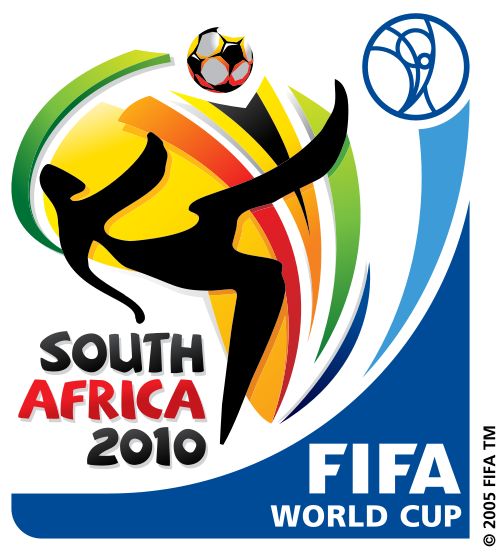Submitted by Ross Wolfarth on
 The 2010 World Cup in South Africa was going to be a shining moment for Africa, but things haven't exactly gone according to plan. Of the tournament's six African teams, all but Ghana have been eliminated early. Half-empty stadiums early in the tournament suggest that the glittering architectural showpieces of the World Cup will quickly become albatrosses. A team of foreigners will leave South Africa with a trophy, and soccer's international master, FIFA will make billions. The people of South Africa will receive far less. The disappointments of the World Cup are clearest in the sad saga of Stallion Security.
The 2010 World Cup in South Africa was going to be a shining moment for Africa, but things haven't exactly gone according to plan. Of the tournament's six African teams, all but Ghana have been eliminated early. Half-empty stadiums early in the tournament suggest that the glittering architectural showpieces of the World Cup will quickly become albatrosses. A team of foreigners will leave South Africa with a trophy, and soccer's international master, FIFA will make billions. The people of South Africa will receive far less. The disappointments of the World Cup are clearest in the sad saga of Stallion Security.
Stallion Security at the World Cup
Stallion Security was contracted to provide security at four of the World Cup stadiums. It is hard to tell exactly what Stallion promised its 3,600 workers. The company itself seems not to know. One worker in Johannesburg was promised 500 Rand for a twelve-hour shift. This works out to a little more than $5 an hour, but in a country facing staggering income inequality and 25% unemployment, the Stallion job was a good job. Others seem to have been promised three times as much. What is clear is that Stallion paid less than half of what they promised, and failed to pay some stadium guards at all.
On June 16th, after a match between Germany and Australia, the Stallion guards went on strike to protest their ill-treatment. FIFA and the South African government responded swiftly and aggressively. When the strikers overturned trash receptacles, they faced teargas and rubber bullets. South African police took control of security at the stadium, and as the strike spread to the other stadiums staffed by Stallion, so did the police presence. Soon all 3,600 Stallion employees -- including those never associated with the strike -- were fired. FIFA transferred security duties to the police. The soccer goes on as planned, and a few thousand South Africans are a couple thousand dollars poorer.
The Past of Stallion Security
This is not the first time that Stallion Security has been linked to the most unsavory aspects of world sports. In 2001, Stallion provided security to a soccer match in Johannesburg between the Kaiser Chiefs and the Orlando Pirates. Due to incompetence and corruption, too many tickets were sold to fans, and a crush of people pressed their way into the stadium. Stallion's beleaguered guards fired teargas into the crowd. The stampede left 43 people dead. It seems Stallion's past did not send up any red flags for FIFA or the World Cup Organizing Committee.
The Way Forward, and Those Left Behind
The legal battle to right the wrongs of World Cup security will begin soon. Yes, Stallion Security is suing the World Cup Local Organizing Committee for terminating their contract halfway through the tournament. The thousands of South Africans have fewer options, and wait and hope for Stallion to pay them for the hours they already worked.
Sports can be wonderful and inspiring, as anyone watching the United States in this World Cup can attest. Sports can give us goals in the ninety-first minute and tennis matches that last eleven hours. But sports are also a business, and all too often a business in which average people subsidize the grand commercial projects of the elite. The people of South Africa pay for eight soccer arenas, and FIFA takes the profits. The next time FIFA, the International Olympic Committee, or even the Oakland A's come to a community demanding special treatment, it is worth remembering the broken promises of Stallion Security.

Comments
nielo replied on Permalink
FIFA WORLD CUP
John Goodham replied on Permalink
Sad
Anonymous replied on Permalink
World Cup Stadiums
Easy Diets replied on Permalink
Stallion Security has to pay
Anonymous replied on Permalink
FIFA World Cup
Mutternich replied on Permalink
Here's another suggestion.
Nicole Beckett replied on Permalink
Not surprised to hear this,
seho replied on Permalink
2010 world cup ...
lolaslinks replied on Permalink
Football (soccer) achieved
Samie replied on Permalink
World Cup
Pages